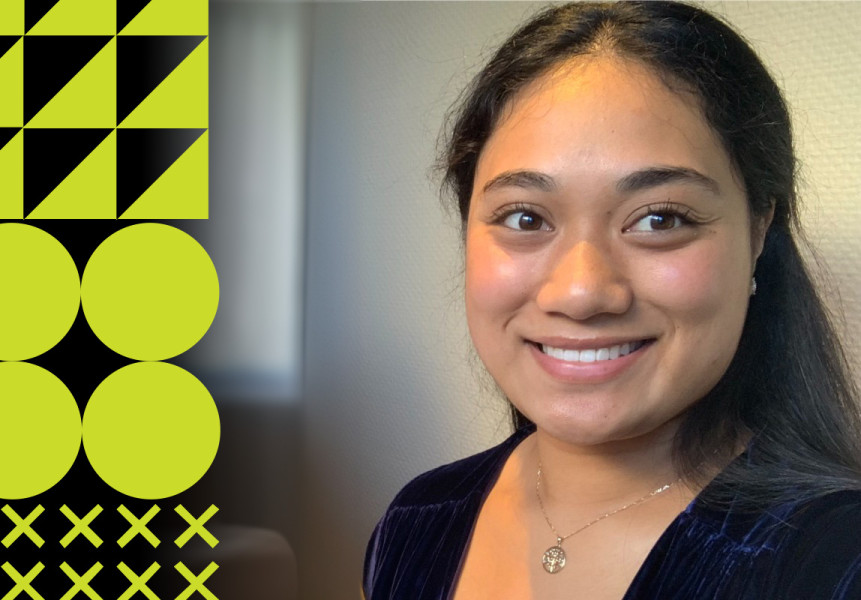Helping Pacific communities through clinical research
Helping Pacific communities through clinical research

Melemafi Porter is coordinating a study that could impact how vaccines are administered in Aotearoa.
For clinical researcher and PhD student Melemafi Porter, her love of science can be traced back to The Powerpuff Girls.
Fuelled by a desire to help Pacific communities through clinical research, Melemafi is now coordinating a study that could impact how vaccines are administered in Aotearoa.
Falling in love with research
Growing up in Wellington, Melemafi loved watching cartoon scientists portrayed in shows like The Powerpuff Girls and Jimmy Neutron.
After studying a Bachelor of Biomedical Science, Melemafi “fell in love with research” while pursuing her Masters of Clinical Immunology.
She made connections with the Medical Research Institute of New Zealand (MRINZ) and found that health research was a way she could work with communities to investigate unanswered questions.
Melemafi now coordinates the COVID-19 Needle Length Study, which looks at how the length of needle used to deliver the COVID-19 vaccine could impact side effects and immune response.
Earlier research suggests that the standard needle recommended for use in the New Zealand Immunisation handbook might not reach the muscle when vaccinating larger people, prompting researchers to ask whether a longer needle length may be needed. This study is trialling two needle lengths intended for fat deposition and muscle deposition – and looking at whether this impacts immune response and side effects.
Reflecting Pacific Aotearoa
It’s important to have Pacific people in medical research, says Melemafi, to increase awareness of medical developments within Pacific communities.
She is also hoping to recruit more Pacific volunteers for the trial, to make sure the participants reflect Aotearoa’s diverse population.
“Ensuring there is an even spread of the country’s demographic breakdown reflected in the trial population is important for representation” says Melemafi.
Melemafi is fuelled by a desire to help Pacific communities through clinical research.
“This may be through conducting research to contribute in ways we can have better health outcomes or helping other Pacific people who want to pursue a career in this area,” she says.
Melemafi – who hails from the villages of Faleloa, Lotofoa Ha’apai and Kanokupolu, Tongatapu – thanks “the village backing me, my family, supervisors, and larger community” for supporting her work. She says Professor of Immunology Dianne Sika-Paotonu has been a source of inspiration for her.
“Growing up I didn’t see many Pacific women in STEM and witnessing her journey as a Tongan researcher has been reassurance for me.”
Seizing opportunities
Melemafi says making the most of opportunities, and taking things at her own pace, have been crucial to her career journey.
“My advice to young Pacific people who are wanting to pursue a career like mine is to not be afraid of change and to seize the opportunity when it comes.
“I wouldn’t consider myself an A+ student or the smartest person in the room, it usually takes me a while to understand a concept or idea. Being okay with not going at the same pace as others has been reassuring for me and my own learning,” she says.
The COVID-19 Needle Length Study is recruiting for participants across the country. Find out how you can get involved at MRINZ.
